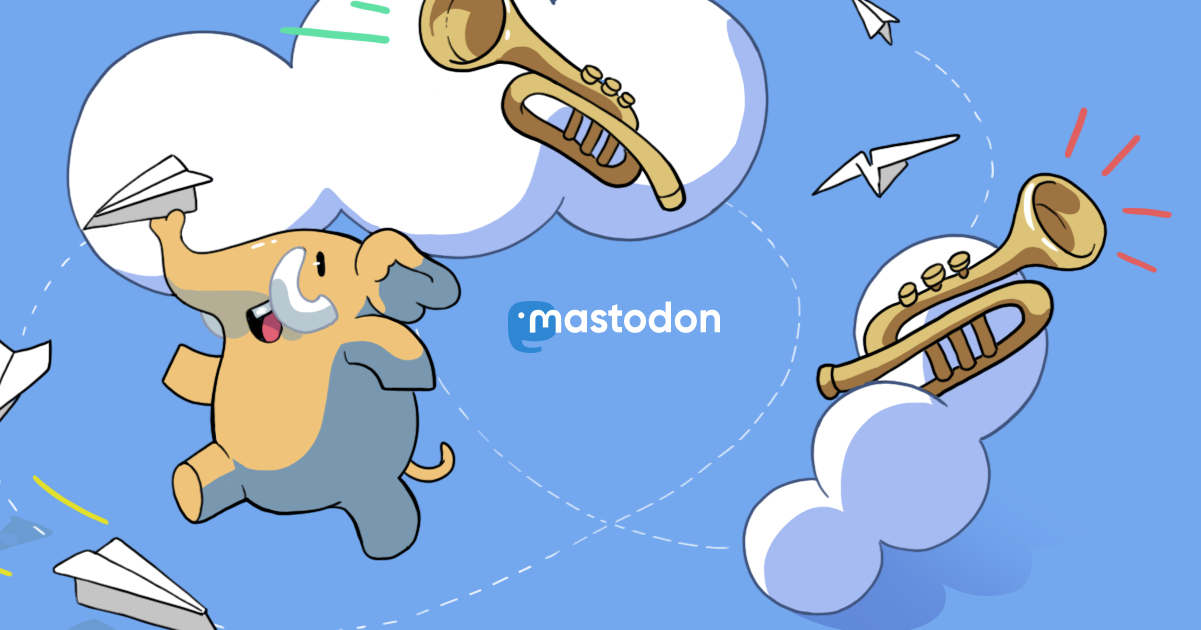there seems to be a growing anger in the internet underground toward good and non-malicious actors in the space like CloudFlare and Signal simply because they chose to build centralized systems, as if centralization is an inherently bad thing.
i wonder how many of those people so complaining also avail themselves of 12-36h amazon delivery.
centralization gives huge efficiency wins. decentralized is not always better.
@doenietzomoeilijk cloudflare isn't a monopoly, monoculture, nor does it have monopolistic tendencies. same goes for signal.
with centralized services, we can still move if things start going dick-shaped.
i'm not sure either of these are good arguments.
@doenietzomoeilijk centralized has always been better in practice so far. no decentralized system has ever made an OS that's useful to non-nerds, for example.
@sneak @doenietzomoeilijk decentralization is never done for efficiency. Decentralization is done for robustness/anti-fragility.
In today's world, honestly I don't even know if efficiency is something we should even care at all. I can not think of anything that I would pay more to get more efficiency or performance, but I can think of plenty of examples of things we pay a premium to get the most robust/sustainable solution.
@raphael @doenietzomoeilijk people who don't care about efficiency are people who have never helped build, design, or finance infrastructure for hundreds of millions of active users (and i'll put money on the fact that they never will, with that approach).
@sneak @doenietzomoeilijk you are right. I do not want to have millions of active users. And I think that no single entity (person or company) should even be allowed to.
@raphael @doenietzomoeilijk you're arguing for a restriction on freedom of association, which is a violation of human rights. it's insane to advocate that people should not be able to use the products and services they freely choose to do so. keep your opinions out of my business.
@sneak @doenietzomoeilijk not at all. Don't be silly. Plenty of companies have been broken apart and no one claimed violation of human rights. They can still work/collaborate and do business. What I am against is having systems that become "too big to fail".
@raphael @doenietzomoeilijk i just claimed violation of human rights.
@sneak @doenietzomoeilijk alright, let me rephrase it: plenty of cases where companies were broken apart and never got to be overruled on grounds of it being a violation of human rights.
@raphael @doenietzomoeilijk very few governments, perhaps zero, have cared enough about human rights to preserve them vigorously.
Ok, I'll concede that "not allowing any entity to have more than X amount of users" is not the right way to go about it.
You still need to make the case that efficiency gains from centralization are a net win for society(ies), despite the increased risk of systemic collapse ("too big to fail" industries), correlation with corruption and abuse of power (MSFT/GOOG/FB/APPL/any fucking tech company with more than 100 employees), and that it *never* favors individuals
Just as an example: when the big 4 meat packers collude to choke small producers, are the ones that give in to the lowball offers "freely associating"?Are you as customer "choosing" anything really?
@sneak @doenietzomoeilijk also, BitTorrent and the whole *arr suite of applications are better in basically every metric compared to Netflix/Spotify/any other centralized catalog.
@raphael @doenietzomoeilijk depends on your use case tbh. i can't bittorrent on my watch.
@sneak @doenietzomoeilijk but you can watch netflix?
And if you can, why couldn't you have your watch playing streams from your home media server? It should still count as a decentralized system, no?
@raphael @doenietzomoeilijk simply giving netflix $7 is way easier and more convenient than buying, configuring, and operating a "home media server".
@sneak @doenietzomoeilijk this is still an argument based on (short-term) efficiency and also does not account for an alternative that is possible-but-not-implemented-because-it-does-not-favor-the-status-quo: the same smartTV that runs a Netflix client is more than capable of running a streaming server. The potential is there.
@raphael @doenietzomoeilijk yup and you're free to build and sell those tvs and get ignored by people who don't want them because people don't want to be a sysadmin, they want to pay someone else to do it for them.
@sneak @doenietzomoeilijk we might think that Amazon 24h delivery is amazing just because we haven't seen a working decentralized solution *yet*. I need to dig up an article about the "home-meal delivery" in India. No central planning involved and they still manage to get an absurdly low error rate to deliver food, cheaper and faster than any lieferservice could ever hope to be.
@sneak, I wouldn’t bat an eye if sites with CloudFlare works better than without. I know many don’t like it for not censoring this and that or being an encryption middle man, but for me it’s simply unacceptable to have to solve capcha every other site. Sometimes CloudFlare just denied my access all together, and my theory is that it’s a reverse rate limiter: you can’t get DoS if you randomly deny services within your capability, especially within regions your customers might not profit a lot from. So in this very case, centralization doesn’t work, it only offers an illusion of uptime.

@sneak There's efficiency wins to be had with centralization, sure, but what people are increasingly sick of is the monoculture and the monopolistic tendencies that seem to automatically go with it. There's been plenty of non-malicious actors that did, in time, turn malicious, and peope are weary. With decentralized services, you can at least move if things start going dick-shaped.
Let's turn your statement around: decentralization gives huge freedom wins. Centralized is not always better. ;)